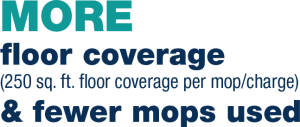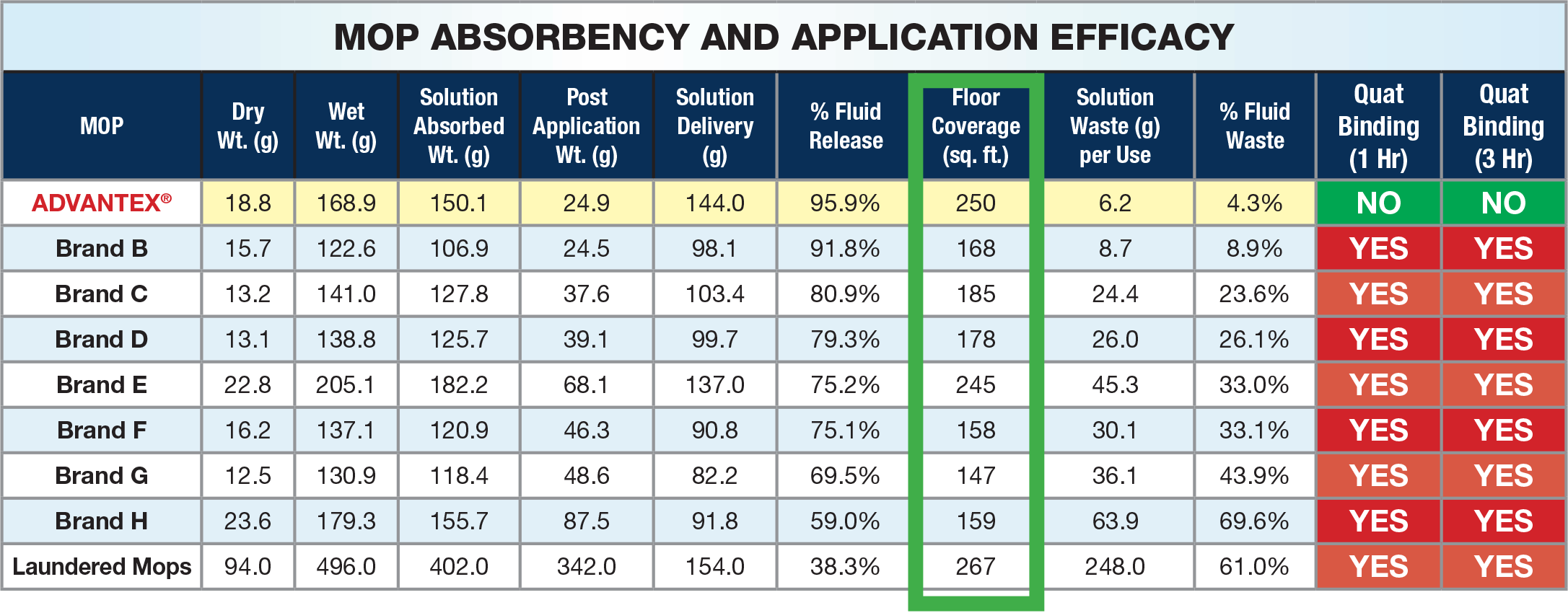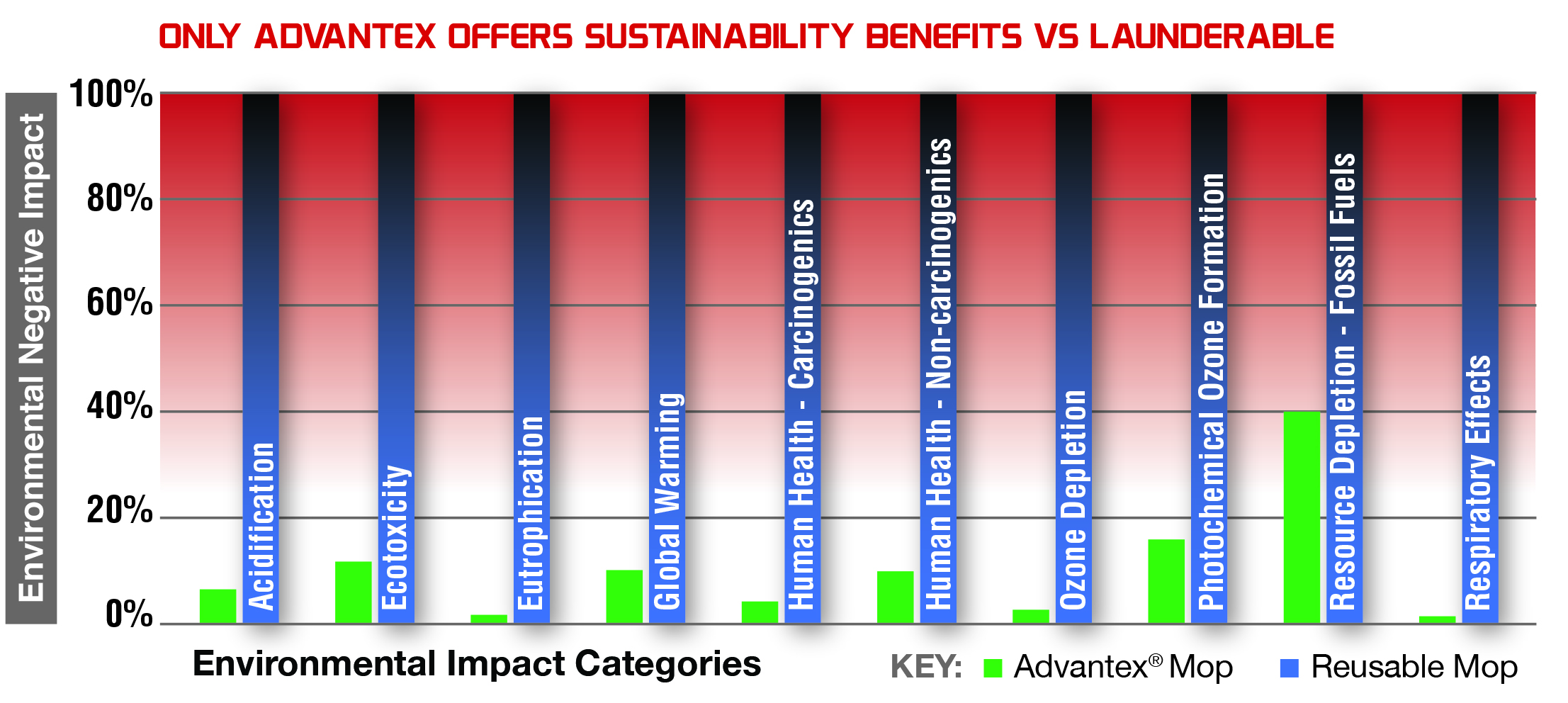


CHEMISTRY COMPATIBILITY
- Best-in-class non-quat binding, compatible with all cleaning chemistries
- 95.9% of chemistry delivered to the floor
PROFESSIONAL GRADE MICROFIBER WITH SUPERIOR EFFICACY
- 27.3% of Laundered microfiber retains HAI pathogens*
- Reduces risks of cross-contamination
- 99.9% efficacy of pathogen removal*
- Improves environmental safety
SUSTAINABILITY
- Constructed of 71% post-consumer recycled materials
- Lower fuel and water usage
- Significantly reduces cleaning chemistry waste
- Eliminates harsh chemical usage in laundering process
COST REDUCTION/BUDGET FRIENDLY
- Requires 47% less chemistry
- Increases cleaning staff efficiency
- Greater coverage with fewer mops
- Less cost than outsourced laundry per use
ELIMINATES LAUNDERING MICROFIBER
- Reduces EVS laundry service management and compliance audits
- Eliminates risk of co-mingled, residual byproducts from different laundering entities
- Eliminates using damaged, ineffective microfiber resulting from the laundering process
- Eliminates risk of reintroducing pathogens retained in laundered mops
*Supporting data available upon request
TEST RESULTS & ENVIRONMENTAL analysis
Test Results for Several Microfiber Mop Brands for Absorption, Application Efficacy, and Wasted Disinfectant Product

This study evaluated ADVANTEX® (Brand A) and several brands of single-use microfiber mops and determined that differences vividly exist between brands on several critical criteria such as disinfectant neutralization, absorbency and dispersion/release efficacy, floor coverage, and wasted chemical solution. The full-length microfiber mop case study and lab results are available upon request. (By David Harry and Jack McGurk, MPA.) Note: The complete report, all data, tables and results are available upon request.
Environmental Life-cycle Analysis
Summary & Results: The ADVANTEX® Single-use Mop has a significantly lower environmental impact than a reusable laundered mop in every category assessed in the EPA TRACI model. A contribution analysis on the global warming potential of the two indicates that the electrical power and chemistry needed to wash and dry the reusable mop dominates environmental adverse implications.

Richard Venditti, Elis and Signe Olsson Professor, Department of Forest Biomaterials, North Carolina State University, Room 1204 Pulp and Paper Labs, Raleigh, NC 27695-8005
This report summarizes the findings of an environmental impact analysis of two types of mops, the ADVANTEX® Single-use Microfiber Mop (disposable) and a reusable microfiber mop. Each type of mop was evaluated for 100 uses. The ADVANTEX® Single-use Mop included 100 mops that were each used one time and then disposed of after being transported 20 miles to an incineration facility.
Note: The complete report, all data, tables and results are available upon request.

